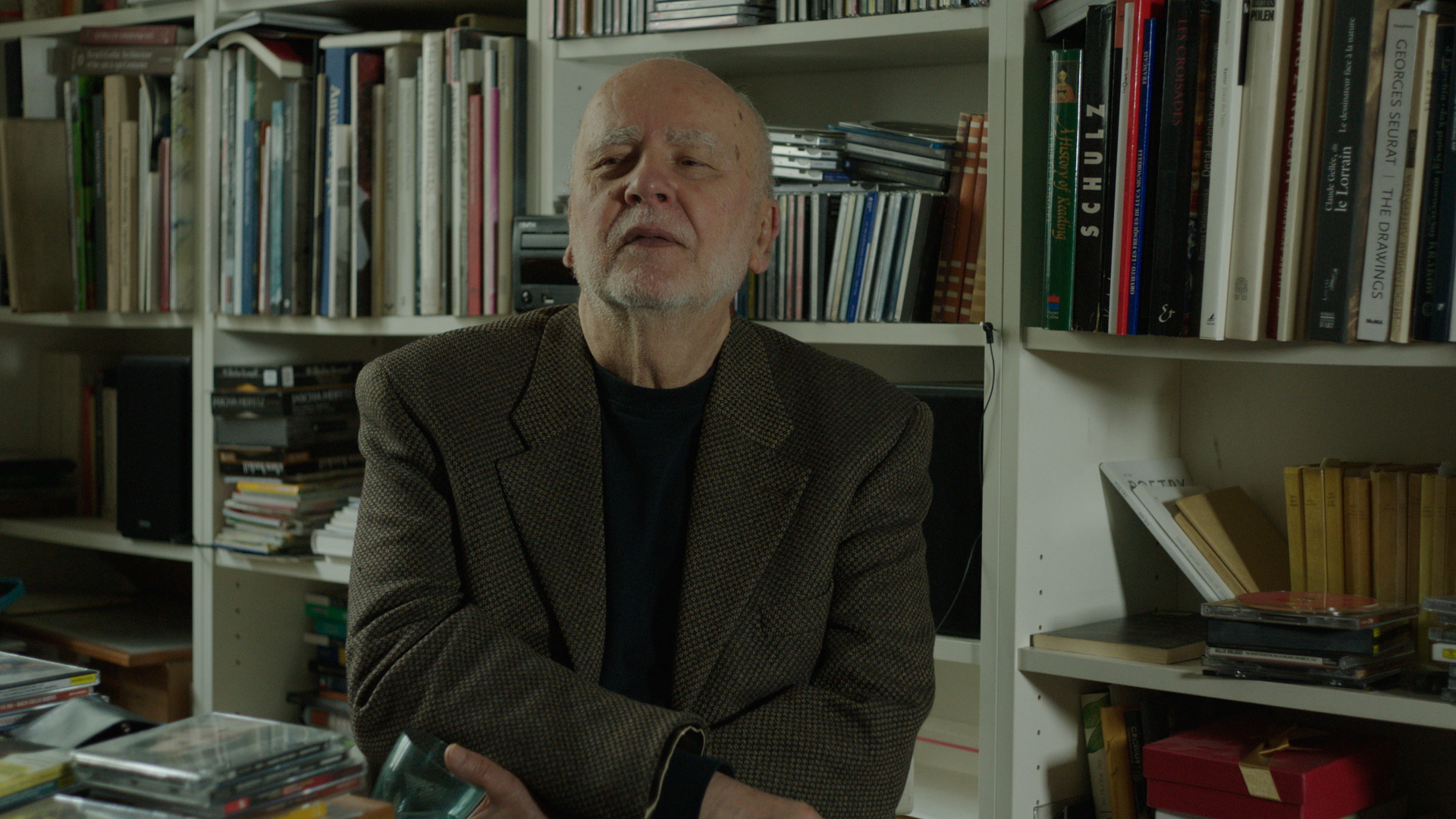NEXT STORY

The decline of communism
RELATED STORIES

NEXT STORY

The decline of communism
RELATED STORIES


|
Views | Duration | |
|---|---|---|---|
| 31. Solidarity, Solitude | 39 | 01:55 | |
| 32. The Flying University | 34 | 03:09 | |
| 33. The decline of communism | 32 | 03:00 | |
| 34. Martial law puts an end to my dreams | 36 | 02:44 | |
| 35. Happy times in Paris | 48 | 02:59 | |
| 36. France rejects my poetry | 42 | 04:46 | |
| 37. Paris-Houston | 41 | 02:24 | |
| 38. Tremor | 38 | 02:55 | |
| 39. My 'American episode' | 45 | 03:35 | |
| 40. My poem appears in The New Yorker | 48 | 03:38 |


Witold Gombrowicz, którego... który jest mi bliski pod niektórymi względami, nie całkowicie – ale pytany co było przeżyciem, które jakby wyzwoliło jego pisarstwo, to powiedział, że wcale nie wojna polsko-bolszewicka czy na przykład odzyskanie niepodległości przez Polskę w '18 roku, tylko jakieś spotkanie z kotem, kiedy był dzieckiem. Coś tak prowokacyjnie, żeby pokazać, że... że to, co się liczy dla niego, to są te intymne, absolutnie wyjęte z życia społecznego, incydenty.
No więc jestem w Berlinie. Zapominam... nie, nie zapominam, ale oddalam się od tego znakomitego chaosu, który w Polsce... opozycyjnego chaosu. Zapominam, a raczej nie zapominam, ale oddalam się od Uniwersytetu Latającego, który nota bene – to była inicjatywa bardziej warszawaska niż krakowska, w stylu warszawskim, ale podjęta przez Kraków. To chodziło o to, żeby prowadzić zajęcia quasi-uniwersyteckie w tych dziedzinach, gdzie była pewnego rodzaju cenzura na... na państwowym uniwersytecie. Chodziło głównie o historię najnowszą, na przykład, no, pewne rzeczy jak Katyń, ale nie tylko. No była jednak cała wizja historii Polski wojennej i powojennej. To... to domagało się innego spojrzenia, ale także literatura, dlatego że była literatura... były obszary literatury wyparte przez oficjalną kulturę PRL-u, na przykład Czesław Miłosz. Już lepiej... łatwiej było się zbliżyć do Gombrowicza. Był łatwiej dostępny niż... niż Czesław Miłosz. Tak że Uniwersytet Latający to były spotkania w domach prywatnych, po – nie wiem – 10 osób, 12. Trochę tak jak komplety w czasie okupacji, które zastępowały... które były na większą skalę,bo to było jakby zastąpienie całego systemu licealnego. Ten Uniwersytet Latający nie mógł się równać, jeśli idzie o zakres z wojennymi kompletami, ale odegrał pewną rolę. Jest taki wiersz Wisławy Szymborskiej, który się nazywa Pornografia, ale pornografią tu nie jest prawdziwa pornografia, tylko właśnie taka intelektualna pornografia czyli sięganie do tych zakazanych tematów, bo właśnie Szymborska też uczestniczyła, przynajmniej trochę, w tych rzeczach.
Witold Gombrowicz, who in some respects is like me although not entirely, when he was asked what experience liberated his writing said, it certainly wasn't the Polish-Bolshevik war nor the regaining of independence by Poland in 1918. It was instead an encounter with a cat when he was a child. He said this provocatively to show that the intimate incidents which were totally removed from social life were what mattered to him.
And so, I was in Berlin. I forget... no, not forget but distance myself from that wonderful chaos which remained in Poland... the chaos of the opposition. I forget or rather not forget but remove myself from the Flying University which incidentally was an initiative which came from Warsaw rather than Kraków, but it was the Warsaw model which had been taken up by Kraków. The idea was to conduct quasi-university type classes in areas where there was a degree of censorship at the state universities. It concerned mainly the latest history, for instance, topics like Katyń but not exclusively. There was the entire perspective of Poland's history during and following the war which needed to be seen in a different light. But there was also literature, whole sections of literature which had been excised by the official culture of the PPR, as for instance the work of Czesław Miłosz. It was better, easier to find common ground with Gombrowicz. He was more approachable than Czesław Miłosz. So the Flying University consisted of meetings in private homes of about 10 or 12 people, a little like the clandestine classes that would meet during the Occupation and which replaced... but were on a larger scale because they were replacing the entire secondary school system. This Flying University couldn't compare with the scale of the wartime classes but it did play a certain role. There's a poem by Wisława Szymborska called Pornografia but the pornography she's talking about isn't real pornography, but it's a pornography of the intellect which reaches out to those forbidden topics since Szymborska also took some small part in these things.
Adam Zagajewski (1945-2021) was a Polish poet, novelist, translator and essayist. He was awarded the 2004 Neustadt International Prize for Literature, the 2016 Griffin Poetry Prize Lifetime Recognition Award and the 2017 Princess of Asturias Award for Literature. He is considered as one of the leading poets of the Generation of '68 or the Polish New Wave (Polish: Nowa fala) and is one of Poland's most prominent contemporary poets.
Title: The Flying University
Listeners: Andrzej Wolski
Film director and documentary maker, Andrzej Wolski has made around 40 films since 1982 for French television, the BBC, TVP and other TV networks. He specializes in portraits and in historical films. Films that he has directed or written the screenplay for include Kultura, which he co-directed with Agnieszka Holland, and KOR which presents the history of the Worker’s Defence Committee as told by its members. Andrzej Wolski has received many awards for his work, including the UNESCO Grand Prix at the Festival du Film d’Art.
Tags: Berlin, Kraków, Warsaw, Czesław Miłosz, Witold Gombrowicz, Wisława Szymborska
Duration: 3 minutes, 9 seconds
Date story recorded: March 2018
Date story went live: 25 April 2019